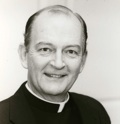Judicial Campaign Talking Blues, Part 1
March law review madness has pretty much kept me from getting my blog on, so I have a whole slew of pontification on back order.
One of the things I am wondering about is campaign rhetoric in judicial elections. We all hate it, but why?
I have been thinking about it through the lens offered by one of my favorite law school professors, Duncan Kennedy. He said that there were two species of error in the way that non-lawyers think about the law. One is lay cynicism — the idea that judges do whatever they want to and that judging was just politics by another name. (There was, of course, a sense in which Duncan believed this — probably still does — but it was at a structural rather than decisional level.)
One of the things that I think we hate about many judicial campaign ads is that they appeal to this lay cynicism.

